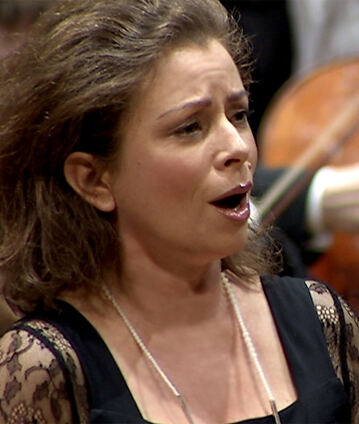Interview
Sir Simon Rattle à propos de l’interprétation des symphonies de Mahler (volet 1) Simon Rattle dirige la Quatrième de Mahler

Le tintement de clochettes l’indique dès les premières mesures : la Symphonie n° 4 de Mahler ne cherche pas à en imposer, elle nous transporte dans un royaume enchanté. Mahler lui-même a déclaré : « Il y a là la sérénité d’un monde supérieur qui nous est étranger », mais « qui a pour nous quelque chose d’effrayant et d’horrible. » Ce concert dirigé par Simon Rattle comprend aussi l’élégant ballet Apollon musagète de Stravinsky.
Berliner Philharmoniker
Sir Simon Rattle
Christine Schäfer
© 2011 Berlin Phil Media GmbH
Interviews liées au concert
Artistes
Nos suggestions
- Claudio Abbado conducts “Songs of Love and Desire” at the 1998 New Year’s Eve Concert
- Simon Rattle dirige « Le Chant de la Terre » de Mahler
- Simon Rattle dirige Strauss et Beethoven
- Sir Simon Rattle conducts “Carmina Burana” at the 2004 New Year’s Eve Concert
- Simon Rattle dirige des musiques de film à la Waldbühne
- Simon Rattle dirige « Tosca » à Baden-Baden